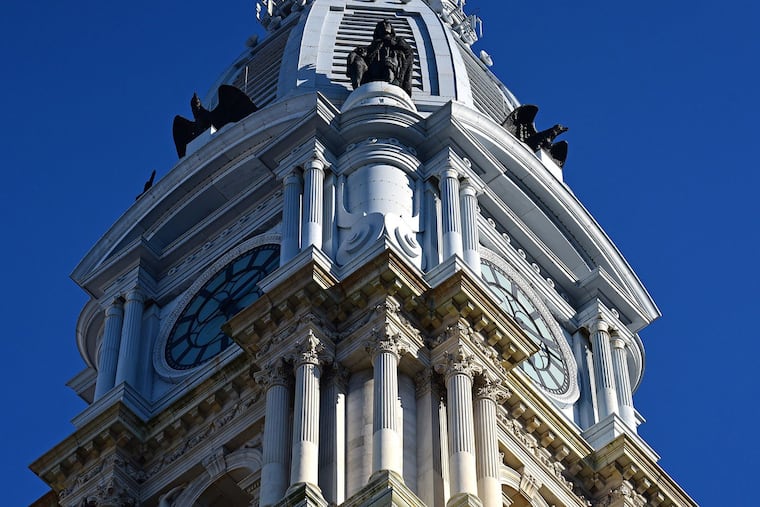Philly finished the budget year with an unexpectedly high $492.4 million financial cushion
For those who wanted to see more money go to spending increases or tax cuts, the surprisingly high fund balance looks like evidence that the city could have been more aggressive during budget talks.

Philadelphia finished the last budget year with $405.8 million more in unspent cash than it had projected due to unexpectedly strong revenue from the business and real estate transfer taxes, a new city report shows.
The city had a total of $492.4 million left over from its $5.5 billion budget when the 2022 fiscal year ended June 30, according to the most recent Quarterly City Manager’s Report.
» READ MORE: What you need to know about Philly’s new tax and budget plans
For Mayor Jim Kenney’s administration and others concerned about the city’s ability to weather downturns, that’s great news.
“With the availability of federal relief to COVID response and recovery, and a strong real estate market, Philadelphia was able to navigate FY22 better than expected,” the report said. “The larger‐than‐expected fund balance may be essential for weathering future revenue drops and cost increases.”
But for those on City Council who wanted to see more money go to spending increases or tax cuts this year, the surprisingly high fund balance will look like proof that the city could have been more aggressive during last spring’s negotiations over the current $5.8 billion budget.
» READ MORE: City Council’s tax-cutting budget deal represents a return to the center in Philly politics
At a budget hearing earlier this year, lawmakers pressed the administration on why it was not spending federal aid more rapidly amid the city’s gun violence crisis and uneven rebound from the coronavirus pandemic. Councilmember Isaiah Thomas said now is “the moment that we need to invest significant dollars,” and Majority Leader Cherelle Parker urged the administration to “do it with a sense of urgency.”
Council and the administration reached a compromise to add millions more in spending before talks wrapped up in June, and the city’s five-year budget plan was approved a month later by the Pennsylvania Intergovernmental Cooperation Authority, a state board that oversees Philly’s finances.
Following the $492.4 million balance from last year’s budget, the five-year plan shows that the amount the city projects it will leave unspent ranges from a high of $420.6 million in the 2025 budget year to a low of $86.6 million in 2027.
The unspent money, known as the fund balance, now amounts to just under 9% of the budget, which is higher than the city’s goal of maintaining a 6% to 8% fund balance. But it’s still well below the Government Finance Officers Association’s recommendation of leaving 17% unspent, which would be $886.6 million.
The bump in the fund balance was driven by improved tax revenues.
The business income and receipts tax took in about $633 million last year, $30 million more than previously expected. The real estate transfer tax, meanwhile, took in $537.7 million, which is $47.7 million above projections.
The administration is urging caution over the city’s financial picture, noting that city coffers have been propped up by $1.4 billion in federal pandemic aid, and that a widely expected economic downturn could force the city to burn through its reserves.
“We are hopeful that some of these conditions persist — namely higher fund balances and limited need to tap into reserves,” the report said. “Unfortunately, the future is expected to include reduced collections from some tax types as the real estate market cools and economists’ expectations for economic growth grow dimmer.”